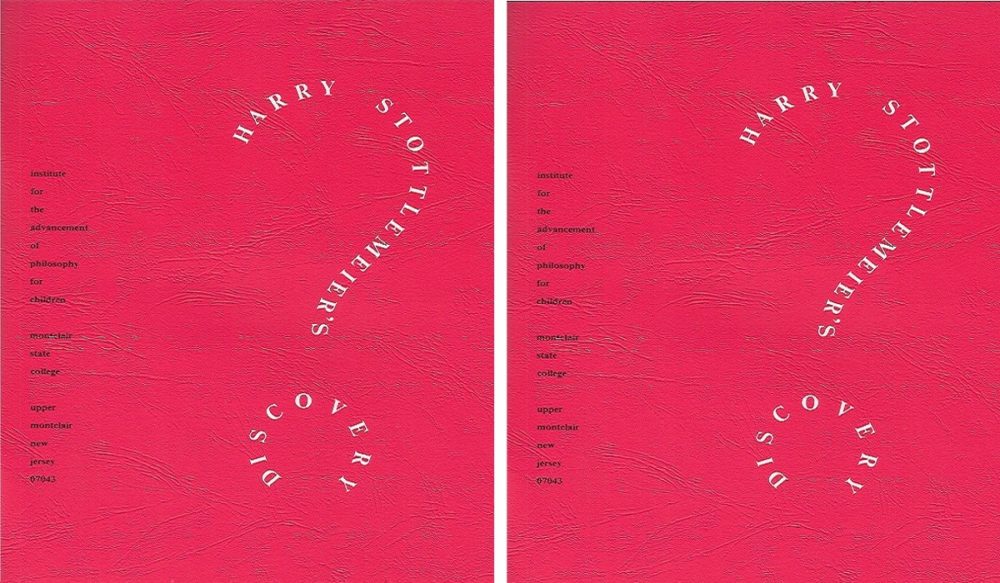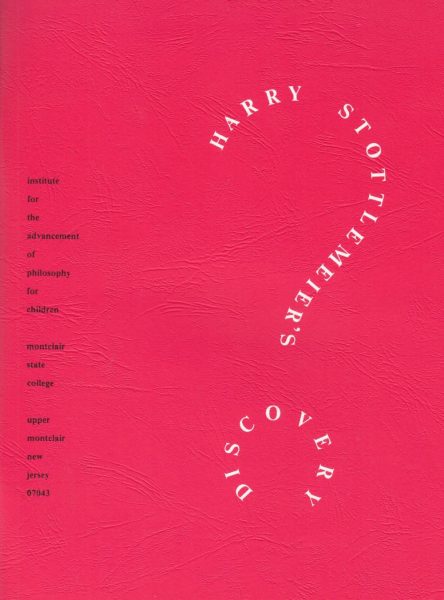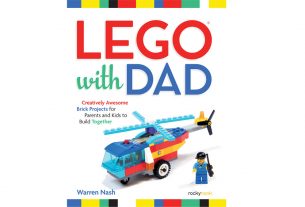 Sometimes the simplest of questions can lead you to the big ones.
Sometimes the simplest of questions can lead you to the big ones.
My kid is curious; he wants to know stuff all the time. Some of his questions are far-fetched, and some are pretty obvious (a nice word for the things that tend to disappear because they are on plain view). For example: where does the water come from? And, of course, where does the toilet water go? These two were some of the first questions he ever asked me, before he was 3 years old.
And he knows one question leads to the next one. That is the basis of logical thinking. Are five-year-old’s capable of logical thinking? Well, of course.
Mathew Lippman knew about this. He founded the Institute for the Advancement of Philosophy for Children and created some incredible books on the subject. The very first one, Harry Stottlemeier’s Discovery, introduces fourth and fifth graders to Aristotle’s rules of logic, using questions that popped up on classes by the children themselves. I think his books and lessons were my favorite ones at college because they were a fresh approach to a very old problem: how to talk to kids about the big themes.
 Where do we come from? How come everything exists? Why are we alive? Sometimes kids won’t ask you these questions, but what will you do when they start showing up?
Where do we come from? How come everything exists? Why are we alive? Sometimes kids won’t ask you these questions, but what will you do when they start showing up?
Well, first thing is: simple and short answers. Second: if those answers spur other questions, try your best to keep them simple as well. When my kid asked me about the water source, I told him it came from the tap. And when he asked me about the toilet water, I told him it went down the drains, for recycling.
Now, after some time, he did ask me where the tap water came from.
You probably are not aware, but here in Bolivia, we are experiencing some serious water shortage.
This is the worse drought in 25 years, and some reservoirs of water have simply run out. La Paz, where I live, has a million inhabitants and 50% of them have not been able to get access to running water these past few weeks. (Here are some pictures).
“The water comes from the reservoir, and it feeds from rain.” I told him. “It hasn’t been raining and we must be extra careful because many friends and relatives have no water now.” He was baffled of course. “Mommy, why has the water run out?” To me, the answer was pretty obvious: “Because we were not careful before.”
You don’t need to use fanciful words as climate change. Not just yet. But when the question comes, you can slowly build up to it. “Remember we visited the reservoir and it was halfway dry? Remember our trip to the mountains and how all the woods were burned down? Trees retain water, and that helps it rain.”
It may seem as a simple answer, but you know complex answers come next: we don’t really know how rain works. That’s why we can only see some results of the climate change around us, and why we have hot long debates about it and what to do next. Admitting to not knowing is good though; there are always scientists and Google to ask what you don’t know. That’s the good thing about questions.
These days, I try to keep my voice level; I try not to be angry. I did tell him that the water company made some mistakes. And boy, I really was tempted to blame the government. Only I refrained myself.
I know which question goes next, and I will really try hard to answer it right because I can hear it coming. The next question will be: “If the government is wrong… well, who put them there?”
Aristotle will be my aid when it’s my turn to answer: Our job is not only electing the government, it is to take part and check on them every step of the way. He said it: “Anybody can become angry — that is easy, but to be angry with the right person and to the right degree and at the right time and for the right purpose, and in the right way — that is not within everybody’s power and is not easy.”



